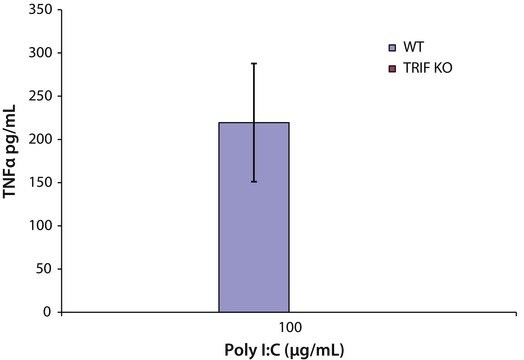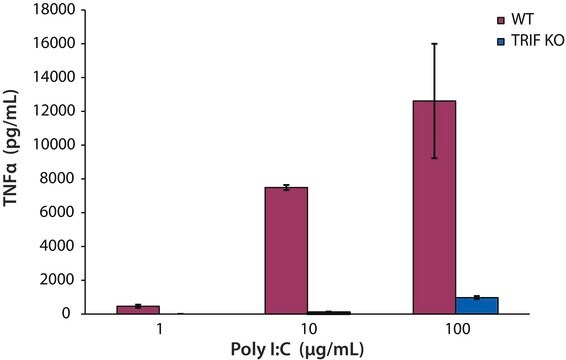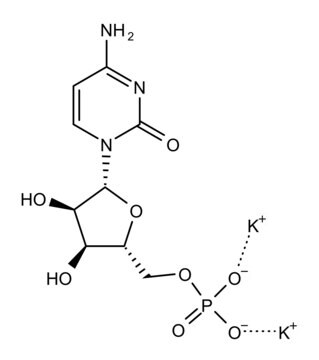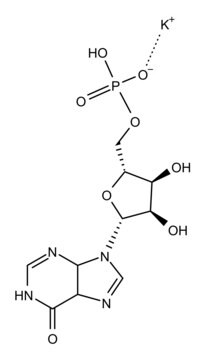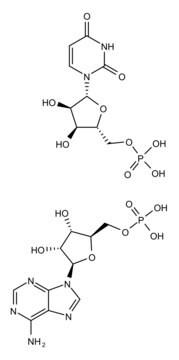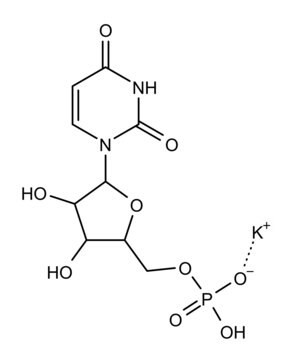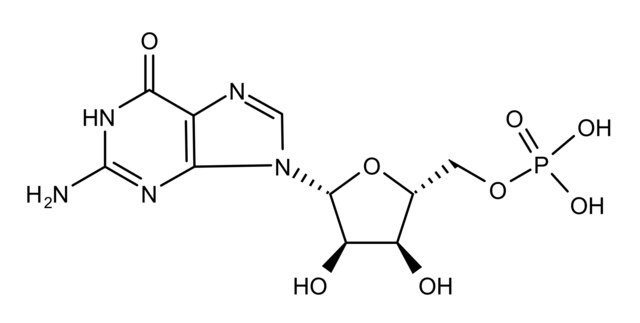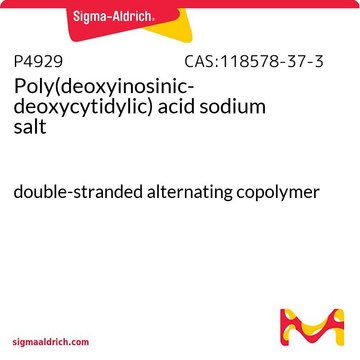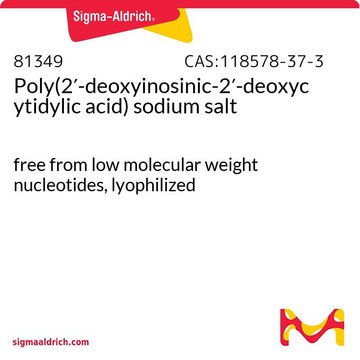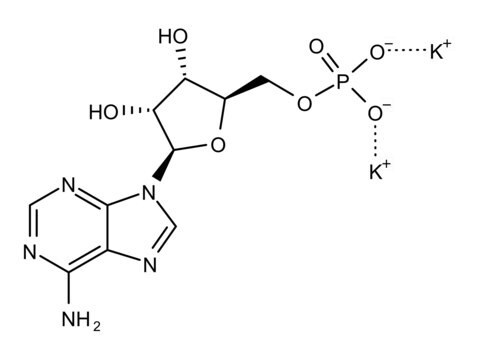I3036
Polyinosinic–polycytidylic acid potassium salt
γ-irradiated
Sinônimo(s):
Poly (I:C), Poly(I) • Poly(C)
Faça loginpara ver os preços organizacionais e de contrato
About This Item
Produtos recomendados
Ensaio
≥99% (TLC)
composição
, 8-12% UV
temperatura de armazenamento
−20°C
Procurando produtos similares? Visita Guia de comparação de produtos
Ações bioquímicas/fisiológicas
Transfection of Poly (I:C) into NIT-1 cells has been used as a model of intracellular dsRNA-induced β cell apoptosis. Eighteen hours post transfection, 45% of the cells were apoptotic with an increase in NF-kB, p50/p65 nuclear translocation, and cleavage of caspases 3 and 8, as well as transcriptional induction of caspase 12, Fas, IL-15, and the TNF receptor-associated ligand (TRAIL). It has been suggested that Poly(I:C) is one of the most appropriate generators of stable mature dendritic cells (DC). These mature DC might generate in vivo effective immune responses after injection due to their ability to secrete bioactive IL-12 after CD40 ligation. Poly (I:C) was used as a potent adjuvant to enhance the specific anti-tumor immune responses against a peptide-based vaccine.
Embalagem
Package size based on polynucleotide content
Outras notas
Double-stranded homopolymer.
forma física
10% Poly (I:C) with sodium chloride and sodium phosphate buffer salts
Código de classe de armazenamento
11 - Combustible Solids
Classe de risco de água (WGK)
WGK 3
Ponto de fulgor (°F)
Not applicable
Ponto de fulgor (°C)
Not applicable
Escolha uma das versões mais recentes:
Já possui este produto?
Encontre a documentação dos produtos que você adquiriu recentemente na biblioteca de documentos.
Os clientes também visualizaram
Lingjun Meng et al.
Proceedings of the National Academy of Sciences of the United States of America, 112(35), 11007-11012 (2015-08-19)
Systematic inflammation contributes to the development of many diseases, including cardiovascular disease, which is the leading cause of mortality worldwide. How such inflammation is initiated and maintained throughout the course of disease remains unclear. In the current study, we report
Nossa equipe de cientistas tem experiência em todas as áreas de pesquisa, incluindo Life Sciences, ciência de materiais, síntese química, cromatografia, química analítica e muitas outras.
Entre em contato com a assistência técnica